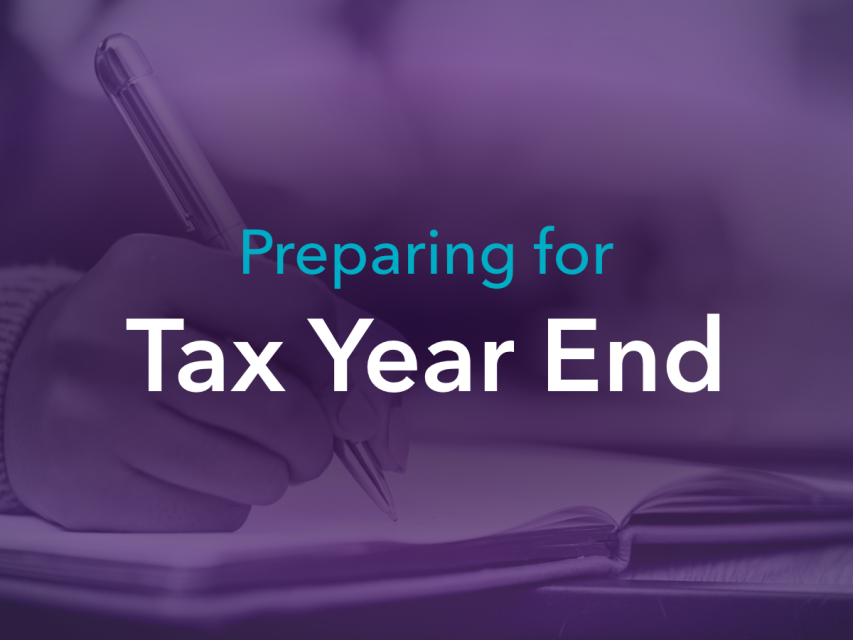10 essential steps to take 10 years before retirement
In the UK, rising life expectancy,[1] changes to tax legislation, and uncertain markets mean that careful planning is more important than ever.
The decisions you make in the 10 years prior to retirement – from pensions and spending to your investments and lifestyle – can shape the quality of your life after work.
In this article we’ll walk you through 10 essential steps to take in the decade before retirement – from boosting your pension and clearing debt to planning your legacy and defining the life you want to lead.
- Get a State Pension forecast
The State Pension is a vital component of retirement income for many in the UK. It is a regular payment from the government that you can claim when you reach a certain age. The full new State Pension is £230.25 per week[2] for the 2025/26 tax year, although the exact amount depends on your National Insurance (NI) contributions over your working life.
The State Pension age is currently 66 for both men and women, but it is set to increase in the future.
Use the State Pension forecast tool[3] on GOV.UK to check how much you’re on track to receive and when you can start claiming it.
- Review your Workplace & Private Pensions
With a decade to go until retirement, it can be a good time to take a closer look at all of your pension pots – especially your workplace pensions and any private pensions.
Start by gathering information on:
- Current pension values – Check the latest statements from all your pension providers
- Projected retirement income – Most providers offer a forecast of what your pot could be worth at retirement, based on current contributions and growth assumptions. Look for your annual statements.
- Charges and fees – Some older pensions charge high annual fees or have limited investment options. If so, you could consider consolidating into a more modern, lower-cost scheme – however, exit fees may apply and you may have other benefits in that scheme that can’t be replicated in other schemes. As always, it is best to speak to a financial adviser before making decisions regarding your pension.
- Employer contributions – Ensure you’re making the most of any matched contributions from your employer. Increasing your own contributions — even slightly — can significantly boost your retirement income over time
If you’ve changed jobs a few times, it’s easy to lose track of past pensions. You can then use the Government’s pension tracing service[4] to find contact details to use if that is the case. This will enable you to have a comprehensive view of your investments and pensions in one place, as well as the chance to have better control over your investment strategy.
- Pay off debt
Paying off debt 10 years before retirement is a key step toward financial peace of mind. While not all debt is bad – affordable mortgage debt that provides you with your dream home, for example – the less you owe, the more flexibility and freedom you’ll have in retirement.
Credit cards, overdrafts, buy-now-pay-later agreements, car finance, and personal loans often carry the highest interest rates and compound quickly. Paying them off now can free up hundreds (or thousands) in interest payments over the next decade.
- Maximise your pension contributions
You may find that the final decade of your working life is often when you’re earning the most, and boosting your contributions now can potentially make a significant difference to your retirement income.
Use your annual allowance
Each tax year, you can contribute up to £60,000[5] (2025/26 limit) into your pension and still receive tax relief – this includes contributions from you and your employer, and your personal contributions will depend on your earnings. For example, if you earn £25,000 then you will only be able to contribute up to £25,000 personally, with your employer able to make up the difference (up to a maximum collective contribution of £60,000).
If you haven’t used your full allowance from the previous three tax years, you may be able to carry it forward and contribute even more.
Check your employer contributions
Providing you are eligible for automatic enrolment, each time you pay into your pension your employer will also make a contribution.
Through auto enrolment, there is a minimum contribution rate of 8%[6] of your qualifying earnings whereby employers must contribute at least 3% and employees pay in 5%.
Some employers may offer contribution matching and agree to pay more than the minimum 3% if you choose to increase contributions too.
Take advantage of tax relief
Tax relief is a valuable benefit that boosts your pension pot with contributions from the government on top of your own, based on the tax you would have paid on the income.
You can get tax relief[7] on your pension contributions in two key ways, which are ‘relief at source’ and ‘net pay.’ Relief at source is where your pension scheme reclaims tax from HMRC, and net pay is when your employer pays the scheme before any tax is deducted. You’ll receive tax relief at the highest rate of income tax that you pay. If you’re a basic rate taxpayer, you’ll get 20% tax relief. If you qualify, you’ll need to claim higher rate (40%) and additional rate (45%) tax relief on pension contributions yourself by completing a self-assessment tax return.
It’s important to note tax is subject to an individual’s personal circumstances and tax rules can change at any time.
- Understand your tax position in retirement
It can be easy to assume that tax obligations will disappear when you stop working – but that’s rarely the case. In reality, you may have multiple income sources in retirement (such as your State Pension, private pensions, ISAs, rental income or part-time work) and each one can be taxed differently.
Planning ahead gives you the chance to structure your retirement income in a way that’s as tax-efficient as possible.
- Consider your lifestyle in retirement
Before you can plan your finances, you need a clear picture of how you want to live in retirement. Do you plan to travel frequently? Move to a quieter part of the country? Spend more time with grandchildren? Or perhaps take up a new hobby or part-time work? Your desired lifestyle will directly impact how much money you’ll need.
Staying active and socially connected can also contribute to a fulfilling retirement. Planning ahead helps ensure your retirement is not just financially secure, but also meaningful and enjoyable.
- Build a retirement budget
Another important step is getting a clear picture of what life will actually cost once you stop working.
Estimate your monthly retirement income
- State Pension: Use the UK State Pension forecast tool to see what you’ll receive
- Workplace/Private Pensions: Get current valuations and projections from all providers
- Other income: Account for rental income, ISAs, savings, part-time work etc
List your expected expenses
- Essential: utilities, food, transport, insurance
- Lifestyle: holidays, dining out, hobbies, gifts for family
- Health-related: dental, optical, prescriptions, private insurance
- Occasional: car replacement, home repairs, big purchases
Account for changes over time
- Some costs may drop (e.g., commuting), but think long term: will you still be travelling at 75? You may also need to think about the potential cost of care.
- Reassess investment risk
As you approach the final decade before retirement, it can be a good idea to review your investment risk profile.
As you get older, you may want to scale back on high-growth, high-risk investments to help protect what you’ve already built. Speak to a financial adviser to understand how your risk profile can work for you.
Ensuring your investments are spread across different asset classes and geographies – also known as diversification – can also help to manage risk.
Take the time to review your risk tolerance and ensure your portfolio aligns with your current goals and timeframe.
- Review your Will
As you start thinking about retirement, it’s essential to ensure your affairs are in order. Reviewing your Will is one of the most important steps you can take to protect your loved ones and ensure your wishes are followed.
Start by checking that your named executors are still appropriate and willing to act. You should also update any provisions related to property, investments, or sentimental items, especially if you’ve acquired or disposed of significant assets.
Other opportunities to review can come with updates to tax laws or legal rules. Staying informed and making adjustments can help avoid unnecessary tax burdens or legal complications for your beneficiaries.
Without a Will, the rules of intestacy will dictate how your estate is divided, which may not align with your wishes. A solicitor or qualified estate planner can help ensure your Will is legally sound and tax-efficient.
- Start thinking about professional advice
As retirement approaches, the financial decisions you make can carry more weight — this is where professional financial advice can make a real difference. A financial adviser can help you make sense of the complex landscape of pensions, investments, tax planning, and retirement income strategies.
Seeking advice 10 years out gives you time to take action, adjust your plans, and grow your pension more effectively.
A financial adviser can also build a personalised retirement income strategy based on your goals and circumstances, helping you to balance pension growth with risk tolerance as retirement nears.
Final thoughts
While it might feel like there’s still plenty of time, acting early gives your money more opportunity to grow and your plans more time to take shape.
Whether you’re planning to travel, spend more time with family, or simply enjoy a slower pace of life, the actions you take today will shape what’s possible tomorrow.
The Financial Conduct Authority do not regulate Will Writing, Tax Advice and Estate Planning.
With investing, your capital is at risk. Investments can fluctuate in value and you may get back less than you invest. This material is not a personal recommendation or financial advice and the investments referred to may not be suitable for all investors.
Tax is subject to an individual’s personal circumstances and tax rules can change at any time.
Pension eligibility and tax rules apply. You should ensure your contribution does not result in your total Pension contribution within the tax year exceeding £60,000 or 100% of your earnings, whichever is lower.
ISA eligibility and tax rules apply.
True Potential Wealth Management is authorised and regulated by the Financial Conduct Authority. FRN 529810. Registered in England and Wales as a Limited Liability Partnership No. OC356611.
True Potential Investments LLP is authorised and regulated by the Financial Conduct Authority. FRN 527444. Registered in England and Wales as a Limited Liability Partnership No. OC356027.
True Potential LLP is registered in England and Wales as a Limited Liability Partnership No. OC380771.





